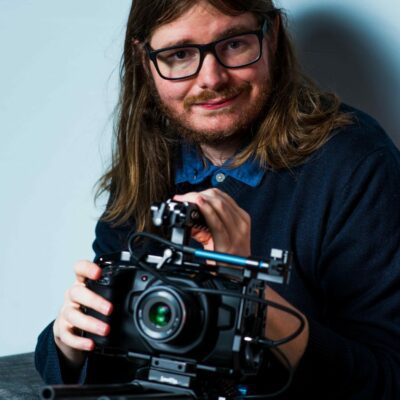Humanity’s greatest flaw is its lack of communication. Honesty bends to the will of the profitable and the victims of 1386 aren’t vastly different from those of 2021. The story of a knight serving under Count Pierre d’Alençon (Ben Affleck) raping another knight’s wife was disparaged by men in power. The Weinstein’s and Cosbys of the world are mere chips in the wood of a log that needs a chainsaw to chop it down. For what the film has to say, it says it well. Brace yourselves: The Last Duel is incredibly graphic—yet for a purpose.
The rape of Marguerite de Carrouges (Jodie Comer) is revolting. Even worse, it’s shown twice. First from the viewpoint of Jacques LeGris (Adam Driver). To him, the struggle Carrouges puts up is minimal. The way we see it from Carrouges’ viewpoint is downright horrifying. Mrs Carrouges’ perspective of the fatal event is written by Nicole Holofcener, whereas LeGris’ perspective is penned by Ben Affleck and Matt Damon. There’s a clear imbalance between acts. The first two chapters can feel distant from emotion, whereas the final act is riveting. Oddly, the imbalance worked for me. It shows the warped reality powerful men live in. For them, empathy is for the weak. Testosterone and the deflection of emotion run deep in their veins. Count Pierre d’Alençon’s constant need for orgies is similar to the excess of a Hollywood party. Perhaps some of that subconsciously reflected itself on the page.
Two Accounts and a Split Audience
The way facts and details change throughout the film is striking. The reaction of Jean de Carrouges (Matt Damon) to his wife’s news is aggressive, yet loving. Later, when the confession plays again, Carrouges becomes an abuser himself without even realizing it. The musings between the Count and LeGris regarding the incident are sickening. Pierre’s best advice to his favorite knight is “deny, deny, deny.” Whether someone was hurt or not doesn’t matter; what matters is that the guys in power don’t look bad.
Ridley Scott’s directorial talents in the technical departments shine in The Last Duel. Longtime Scott Cinematographer Dariusz Wolski paints the frame in blue for an overcast and cold winter centered in Medieval France. Janty Yates’ costume design lends itself well to the narrative, emphasizing the sheer weight that clothing must have taken on its soldiers mentally and physically. The sound design is heavy. Each boot-step signals a sign of power and intimidation the King’s men used to their advantage. Aside from the cast’s hygiene, which always seems conveniently fresh for 1386, the authenticity is stunning the whole way through.
In a Cast of American Men, It’s a Woman From England Who Shines The Brightest.
Equally stunning is Jodie Comer’s performance; I don’t know what more you could ask as an academy voter for an actress to give. The decency, anger, and despair Comer projects is jaw-dropping. Having to carry what’s close to a star vehicle for all the male leads, Comer proves once more why the Brits are the best actors in the world. Two guys from Boston and another from Indiana don’t scream 13th century Medieval France. Since two of the stars are also the screenwriters on the project, Mr Scott decides to go with everyone’s natural accent with a touch of genteelness attached at the end for good measure. The results are mostly successful.
Given Adam Driver’s military background, it’s easy to see him as a Knight in an alternate timeline. His larger-than-life presence, and public charm, make his character believable. He never seems completely demonstrable upfront, but privately he is. Ben Affleck is a big surprise here. He does a remarkable job playing an obnoxious yet brilliant ruler who is a sexual deviant himself. Perhaps not to the extent of his friend LeGris, as far as we know. The weakest link in the cast is Matt Damon, who has the most screen time. If he attached any sense of leisureliness to his accent, I didn’t notice it. Damon relies a lot on his makeup, which is pretty good, so I can’t blame him. Those scars are incredibly believable.
The story is split into three chapters and told out of chronological sequence, like a Quentin Tarantino film. That is, if he made a morally challenging, depressing Medieval drama. Most people might not enjoy this structure. I certainly was thrown off initially, but as the story progressed, I like how it has something to say about how we communicate as a species. If 2020 taught me anything, it’s that hardly anything works. From our day jobs to our political system, we fail in transparency.
1386 isn’t much different from today

When certain people are put on a pedestal, penance for their sins is not paid. They are, and were, able to navigate around all the channels of crossed signals and make it to the top. Now they’re untouchable. A prime reason the story of Marguerite de Carrouges’ rape is told today, other than its reflections, is because Jacques LeGris was challenged to a duel to the death by her husband for his actions. What other cases were swept under the rug during such times? What cases still get ignored? More than we can care to admit. What The Last Duel has to say about humanity’s inability to work intelligently with one another is as telling as its sins, which may, or rather, will never find forgiveness—only more bloodshed.




